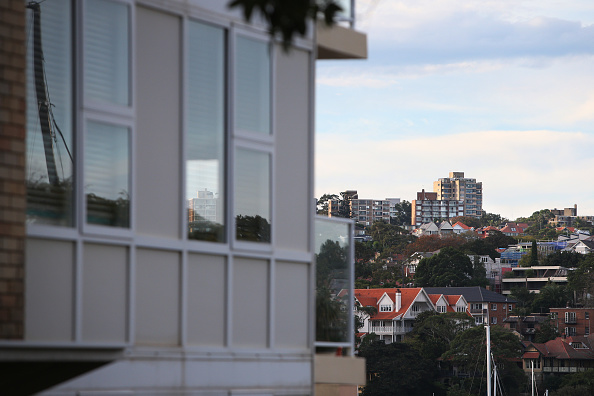These Professionals Aren’t Retired, They Just Have Zero to Prove
Numb to raises and promotions, some people chase different kinds of success
They came, they saw, they conquered work. Then they shrugged.
Some strivers who piled up money and status say they’re over the endless hustle and are embracing what they call a “post-achievement” lifestyle with family, health and passion projects taking priority over career accomplishments.
Another promotion? Too busy surfing. Deferred compensation that’s oh-so-close to vesting? Slipping the golden handcuffs is less painful than you might think.
Post-achievement professionals aren’t necessarily retired, even if they’re financially set for life. Many have transitioned to roles with fewer hours and responsibilities to make time for pursuits they find more meaningful such as podcasting, meditating and playing guitar.
Rather than grab every available dollar and accolade, Kevin Dahlstrom quit a seven-figure, round-the-clock job in 2018. He prefers to be seen as a bold, slightly mysterious figure who could have risen higher but opted out on his own terms.
“I’d be lying if I said that doesn’t stroke my ego,” says Dahlstrom, who left a chief-marketing-officer role and moved to Boulder, Colo., to rock climb. Professional acquaintances sometimes refer to him as a legend because he jumped off the corporate ladder in a way that most people only dream about. “Who wouldn’t like being called a legend, right?”
At age 53, he estimates that he passed up more than $10 million of future earnings but says he doesn’t need to make another penny. He recalls an executive meeting where he looked around the room, saw high-powered colleagues who seemed unhappy, and thought: What’s the point of grinding if it doesn’t bring joy?
He’s still ambitious and recently accepted a more flexible marketing-executive position at a smaller company that allows him to be on task as needed, and on a mountain whenever climbing conditions are good.
“To me, that’s nirvana because I still want to do hard things and work on fun projects,” he says. “But I also want that to be only one part of my life—and not the biggest part of my life anymore.”
Less money, more passion
Here’s the thing about getting to post-achievement status: You have to earn it by doing something impressive first.
The former go-getters I’ve met aren’t the types who could have coasted through middling careers from day one, despite being full of potential. (That would make them quiet quitters or, perhaps, masters of work-life balance .) They needed to prove, to themselves and others, that they could excel at high levels. Only then—with killer résumés and F-you money—could they make dramatic life changes.
Khe Hy , who helped popularise the term post-achievement on his website and YouTube channel , RadReads, says it’s hard not to look back. He left his job as a hedge-fund managing director in 2015 and still feels the occasional pang of envy when he considers the riches that former colleagues have accumulated. Hy, 44, says he’s sitting on about $5 million, probably enough to retire to a frugal lifestyle, but likely not enough to sustain his family forever in pricey, coastal California. Had he remained on Wall Street for a few more years, he might never have to work again.
Still, he moves past those feelings by remembering how numb he’d become to big paydays in finance.
“The key moment is when you realise that no next achievement will significantly change your baseline happiness,” he says. “I consider myself post-achievement because I’m not really striving for anything.”
That’s not entirely true. Hy is trying to bulk up but struggles to add weight to his 155-pound frame. Between running 25 miles a week and surfing almost daily, it’s tough to sculpt more than a lean six-pack, you know?
His RadReads business, which includes coaching for hard-charging professionals who want to rebalance their lives, generates about $200,000 annually. He works about 35 hours a week but controls his schedule and no longer fixates on career advancement.
Rachel Barek , 44, isn’t ready to step down as chief executive of Said Differently, the marketing agency she co-founded, anytime soon. But the majority stake she and her partner sold to a private-equity firm comes with a lifetime of financial security, she says.
“I could very easily fall into the trap of being a serial entrepreneur. I was born that way,” she says. “A lot of serial entrepreneurs are scared of the white space in their lives, and I’m really excited by that white space.”
In her future post-achievement phase, Barek plans to do something radically different: beauty school. She developed the interest while cutting her son’s hair at home during the pandemic and wants to offer pro bono barber services for children with special sensory needs and others who can’t afford to pay. But she concedes her clipping skills could use some work.
Avoiding the success trap
Kristopher Abdelmessih says he was six months shy of collecting about $1 million of deferred compensation when he walked away from his job as an options trader in 2021.
“Maybe it was rash, but I’ve replayed this in my head many times, and I don’t think I would do it any differently,” he says. “I was done.”
Abdelmessih, 45, was motivated to succeed by his modest upbringing in an immigrant household. There would be no safety net if he sputtered professionally, so he picked a field that paid well, played to his strengths and didn’t require graduate school.
But trading was never a calling. Leaving wasn’t so much about losing ambition as it was about a desire to chase fulfilling interests, like tutoring low-income students, gaining the confidence to play guitar on stage for the first time and traveling with his family six to eight weeks a year.
He and a business partner are in the early stages of developing a trading software tool that Abdelmessih hopes will become profitable. If it takes off and demands more of his time someday, that’s OK with him because it’s a passion project.
Jason Chow , a financial-services firm vice president, isn’t post-achievement yet, but he wants to be. Chow, 45, and many others say they’ve climbed high enough to realise each progressive rung brings new hassles and fleeting satisfaction.
“It resonates with me because my life is work, and I know there’s more,” he says. “I just haven’t found what that is yet.”
 Copyright 2020, Dow Jones & Company, Inc. All Rights Reserved Worldwide. LEARN MORE
Copyright 2020, Dow Jones & Company, Inc. All Rights Reserved Worldwide. LEARN MORE
This stylish family home combines a classic palette and finishes with a flexible floorplan
Just 55 minutes from Sydney, make this your creative getaway located in the majestic Hawkesbury region.
Impact investing is becoming more mainstream as larger, institutional asset owners drive more money into the sector, according to the nonprofit Global Impact Investing Network in New York.
In the GIIN’s State of the Market 2024 report, published late last month, researchers found that assets allocated to impact-investing strategies by repeat survey responders grew by a compound annual growth rate (CAGR) of 14% over the last five years.
These 71 responders to both the 2019 and 2024 surveys saw their total impact assets under management grow to US$249 billion this year from US$129 billion five years ago.
Medium- and large-size investors were largely responsible for the strong impact returns: Medium-size investors posted a median CAGR of 11% a year over the five-year period, and large-size investors posted a median CAGR of 14% a year.
Interestingly, the CAGR of assets held by small investors dropped by a median of 14% a year.
“When we drill down behind the compound annual growth of the assets that are being allocated to impact investing, it’s largely those larger investors that are actually driving it,” says Dean Hand, the GIIN’s chief research officer.
Overall, the GIIN surveyed 305 investors with a combined US$490 billion under management from 39 countries. Nearly three-quarters of the responders were investment managers, while 10% were foundations, and 3% were family offices. Development finance institutions, institutional asset owners, and companies represented most of the rest.
The majority of impact strategies are executed through private-equity, but public debt and equity have been the fastest-growing asset classes over the past five years, the report said. Public debt is growing at a CAGR of 32%, and public equity is growing at a CAGR of 19%. That compares to a CAGR of 17% for private equity and 7% for private debt.
According to the GIIN, the rise in public impact assets is being driven by larger investors, likely institutions.
Private equity has traditionally served as an ideal way to execute impact strategies, as it allows investors to select vehicles specifically designed to create a positive social or environmental impact by, for example, providing loans to smallholder farmers in Africa or by supporting fledging renewable energy technologies.
Future Returns: Preqin expects managers to rely on family offices, private banks, and individual investors for growth in the next six years
But today, institutional investors are looking across their portfolios—encompassing both private and public assets—to achieve their impact goals.
“Institutional asset owners are saying, ‘In the interests of our ultimate beneficiaries, we probably need to start driving these strategies across our assets,’” Hand says. Instead of carving out a dedicated impact strategy, these investors are taking “a holistic portfolio approach.”
An institutional manager may want to address issues such as climate change, healthcare costs, and local economic growth so it can support a better quality of life for its beneficiaries.
To achieve these goals, the manager could invest across a range of private debt, private equity, and real estate.
But the public markets offer opportunities, too. Using public debt, a manager could, for example, invest in green bonds, regional bank bonds, or healthcare social bonds. In public equity, it could invest in green-power storage technologies, minority-focused real-estate trusts, and in pharmaceutical and medical-care company stocks with the aim of influencing them to lower the costs of care, according to an example the GIIN lays out in a separate report on institutional strategies.
Influencing companies to act in the best interests of society and the environment is increasingly being done through such shareholder advocacy, either directly through ownership in individual stocks or through fund vehicles.
“They’re trying to move their portfolio companies to actually solving some of the challenges that exist,” Hand says.
Although the rate of growth in public strategies for impact is brisk, among survey respondents investments in public debt totaled only 12% of assets and just 7% in public equity. Private equity, however, grabs 43% of these investors’ assets.
Within private equity, Hand also discerns more evidence of maturity in the impact sector. That’s because more impact-oriented asset owners invest in mature and growth-stage companies, which are favored by larger asset owners that have more substantial assets to put to work.
The GIIN State of the Market report also found that impact asset owners are largely happy with both the financial performance and impact results of their holdings.
About three-quarters of those surveyed were seeking risk-adjusted, market-rate returns, although foundations were an exception as 68% sought below-market returns, the report said. Overall, 86% reported their investments were performing in line or above their expectations—even when their targets were not met—and 90% said the same for their impact returns.
Private-equity posted the strongest results, returning 17% on average, although that was less than the 19% targeted return. By contrast, public equity returned 11%, above a 10% target.
The fact some asset classes over performed and others underperformed, shows that “normal economic forces are at play in the market,” Hand says.
Although investors are satisfied with their impact performance, they are still dealing with a fragmented approach for measuring it, the report said. “Despite this, over two-thirds of investors are incorporating impact criteria into their investment governance documents, signalling a significant shift toward formalising impact considerations in decision-making processes,” it said.
Also, more investors are getting third-party verification of their results, which strengthens their accountability in the market.
“The satisfaction with performance is nice to see,” Hand says. “But we do need to see more about what’s happening in terms of investors being able to actually track both the impact performance in real terms as well as the financial performance in real terms.”
This stylish family home combines a classic palette and finishes with a flexible floorplan
Just 55 minutes from Sydney, make this your creative getaway located in the majestic Hawkesbury region.






















